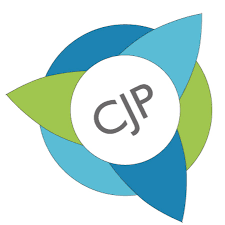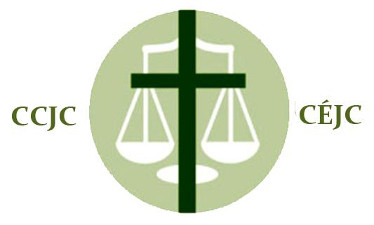Training Sessions
Registrants will be able to choose one from the following Training options (click on each title to learn more about the session and the trainers).
Note that space may be limited for some sessions. Choices will be opened up in mid-September. If you have already registered you will be contacted at that point to make your selection.
- FULL Indigenous Ways of Knowing: “Sacred Circles” with Gayle Desmeules
- Working from a Victim Centred Perspective: What, Why and How? with Alan Edwards
- The F Word: Exploring Forgiveness with Katy Hutchison and Shannon Moroney
- Understanding Deep Rooted Conflict, Structures of Violence & Power Imbalances with Carole Soucis (offered with simultaneous interpretation)
- Circle Up! Using Circles and other Restorative Practices with Youth in Community and Educational Settings with Katie LeMay
- Restorative Parenting: It’s Complicated with Meredith Egan
- Beyond Kale and Yoga: Strategies to Reduce Compassion Fatigue and Burnout as Teams and Individuals with Meaghan Welfare
Indigenous Ways of Knowing: “Sacred Circles”
Participants will come away with an understanding of cultural considerations when working with Indigenous populations, including engagement barriers, do's and don'ts of first meetings and follow-up, and procedural tenets that govern a circle. Essentially, participants will learn how to facilitate healthy ways of connecting, linked to traditional values. The concept of restorative justice is harmonious with traditional Indigenous worldviews and offers a powerful construct for restoring healthy relations to advance the process of Canadian reconciliation and self-determination. When working with historically oppressed populations, restorative justice (circles) can facilitate recovery from intergenerational trauma and stop the cycle of violence by dealing with the root cause of the hurtful/harmful behaviour impacting oneself/others.
This interactive session will help participants understand how sacred circles can create an atmosphere of openness and respect. Participants will:
- Become familiar with the procedural tenets that govern a circle to ensure the experience is culturally competent, where everyone feels welcome, respected, comfortable and safe to speak their truth.
- Examine ways circles can be incorporated into your practice to promote learning, growth and innovation, and to enhance performance, along with employee, family or community wellness.
- Explore how circles can support First Nations, Métis and Inuit communities to reclaim traditional ways of knowing, to reconcile underlying historic injustices and to advance the process of reconciliation for the common future of humanity.
Target Audience
- RJ Practitioners
- Researchers and Academics
- Justice Professionals (police/judges/lawyers)
- Victim Services
- Offender Services
- Policy and Law Makers
- Educators and School Administrators
- Traditional Elders, Spiritual or Religious Clergy
Trainer: Gayle Desmeules
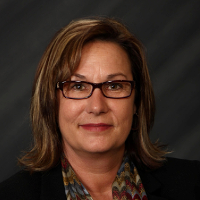
Gayle Desmeules, M.A., QMed, Board of Governors for Portage College. Being a Métis grandmother and child of a residential school survivor has influenced Gayle’s practice and understanding of intergenerational trauma and recovery. Using narrative inquiry, Gayle researched the intention of Family Group Conferencing (FGC) “A Sacred Circle” from an Indigenous (Cree) worldview. Her work was published as Chapter 8, “A Sacred Family Circle: A Family Group Conferencing Model”, in Putting a Human Face on Child Welfare: Voices from the Prairie (http://cwrp.ca/publications/907). Gayle facilitates FGC’s, mediates talking circles, writes Gladue Reports and provides family mediation. She has trained social-justice-education personnel and community facilitators across Canada. With a passion for community development, Gayle has assisted Blue Quills University, Dakota Ojibway CFS (among others) to develop internal FGC training capacity. As a Licensed Trainer for the International Institute for Restorative Practices – Canada www.iirp.edu, Gayle enjoys assisting others to promote an empowering climate in any setting through her company True Dialogue, www.truedialogue.ca
Working from a Victim-Centred Perspective: What, Why, and How?
Of all of the principles of restorative justice, the principle of victim centeredness is perhaps the least understood and, therefore, the most inconsistently implemented. In fact, victim-centredness, taken at face value, seems so contrary to some other RJ values that some programs give little, if any, consideration to victim involvement in casework.
So, what does it mean to be victim-centred, and how might we re-orient our practice to honour this fundamental principle? This workshop will examine victim-centredness in considerable detail, and explore implications for practice. Participants will gain practical ideas and skills for moving their RJ practice further in the direction of being victim- centred.
Target Audience:
- RJ Practitioners
Trainer: Alan Edwards
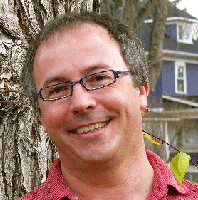
Alan Edwards has been working in the field of restorative justice for 20 years, and is based in Edmonton, Alberta. He has co-facilitated countless encounters between victims and offenders, mostly in cases involving violence. Since 2004, he has been working exclusively on cases of serious and violent crime, in the Restorative Opportunities Program of Correctional Service Canada. Alan has co-authored five papers on restorative justice and violence and has delivered workshops throughout Canada and the United States. He is also an instructor with the Crisis & Trauma Resource Institute(CTRI), Achieve Centre for Leadership & Workplace Performance, and Guest Trainer for Community Justice Initiatives of Fraser Valley, BC (CJI). Alan is the recipient of the 2016 National Ron Wiebe Restorative Justice Award, which recognizes leadership in the service of justice and peace.
The F Word: Exploring Forgiveness
An experiential workshop that will provide participants an opportunity to explore forgiveness and learn what it can mean both personally and for the people they work with who may be stuck in grief or resentment.
Part of being human is getting hurt. Sometimes we hurt others; sometimes others hurt us. We even hurt ourselves. Holding onto this hurt and allowing it to dictate the course of our lives can have negative long-term consequences. Forgiveness can change the shape of our journeys. It can release anger, fear, judgment and resentment, and open the door to peace and a positive future. People who are given the space and support to understand forgiveness and apply it to their own lives go on to perform better at their jobs and move forward toward their life goals. They are better equipped to make choices about relationships, coping strategies and self-care.
Founded on principles of circle dialogue, inclusivity and respect, the F Word uses a rich combination of conversation, reflection, role-play, whole-group and small-group discussion, film and media to take participants on a journey of self discovery, reflecting on past harms and finding the tools to create a positive future. They will come away with practical tools and supports to continue their journeys.
Target Audience:
- RJ Practitioners
- Offender Services
- Researchers and Academics
- Policy and Law Makers
- Justice Professionals (police/judges/lawyers)
- Educators and School Administrators
- Victim Services
Trainers: Katy Hutchison and Shannon Moroney
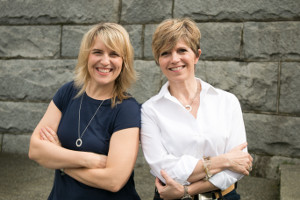
Katy Hutchison is a best-selling author, professional public speaker and restorative justice advocate. What she describes as her “accidental career”, one that has taken her around the world and touched the lives of thousands, began in 1998 following the murder of her husband Bob McIntosh. A passionate spokesperson for victim and offender issues, Katy also works with youth to understand social responsibility and develop their emotional literacy. Her book, entitled Walking After Midnight: One Woman's Journey Through Murder, Justice and Forgiveness is published in Canada and the US. Her 2013 TEDx talk has been viewed over 100,000 times.
Shannon Maroney was a high school teacher and counsellor in 2005 when violence tore her life apart. Her husband was in custody after confessing to the sexual assault and kidnapping of two women. Shannon faced difficult choices as she searched for a path that would lead her out of trauma and toward a positive future. After personally discovering the lack of help available for families of criminals, she became a restorative justice advocate who speaks internationally on the ripple-effect of crime. In detailing her heartbreaking story of grief, violence, judgment and stigma, she also tells the story of a journey filled with compassion, forgiveness and hope. Her memoir, Through the Glass was nominated for several awards including the Governor General’s Literary Award for Non-Fiction (2012) and was a Canada Reads Top 40.
Understanding Deep-Rooted Conflict, Structures of Violence & Power Imbalances
Participants will gain an understanding of deep issues in conflict and gain practical strategies to deal with deep conflict.
This session will help participants enhance their understanding of conflicting situations and further develop their abilities to manage challenging conflict situations and behaviours. Participants will engage in experiential learning, including role-playing, to help them understand and explore the following themes and build their capacity for integrating them into conflict resolution processes:
- deep-rooted conflict issues and human identity needs
- structures of violence and structures of blessing and
- dealing with power imbalances.
The training will be offered in English. The trainer, however, is fluently bilingual and will answer questions in both official languages. Also, the training handouts will be in both English and French.
Target Audience:
- RJ Practitioners
Trainer: Carole Soucis
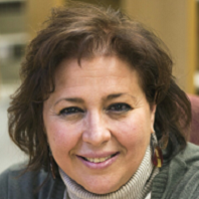 Carole Soucis is a lawyer, mediator and trainer, specialising in the field of dispute resolution. Over the past 25 years, Carole has held various positions in the field of dispute resolution including adjudicator, mediator, negotiator, facilitator, advisor, coach and trainer. Carole has worked in Canada and abroad and she is fluent in French, English and Spanish. She is a former board member of the Canadian Institute for Conflict Resolution.
Carole Soucis is a lawyer, mediator and trainer, specialising in the field of dispute resolution. Over the past 25 years, Carole has held various positions in the field of dispute resolution including adjudicator, mediator, negotiator, facilitator, advisor, coach and trainer. Carole has worked in Canada and abroad and she is fluent in French, English and Spanish. She is a former board member of the Canadian Institute for Conflict Resolution.Circle Up! Using Circles and other Restorative Practices with Youth in Community and Educational Settings
Punitive approaches to discipline are often ineffective and harmful, and there is a large body of research to support the effectiveness of using restorative practices in schools – to prevent bullying and aggression, create a positive school climate and promote healthy relationships.
This session will explore the foundational principles of what it means to use a restorative approach, and will offer concrete tools and ideas to help those who work with young people to integrate restorative practices into their work in a meaningful way – to help build community, foster healthy relationships, make collective decisions and manage conflict.
By the end of this session, participants can expect to:
- Understand the foundational principles of what it means to use a “restorative approach” to discipline when working with children and youth
- Know the key “restorative questions” that guide all restorative processes
- Have a repertoire of ideas on how they can begin to integrate restorative practices right away (including using talking circles, having informal restorative conversations, setting up their space in a more restorative way, etc.)
Target Audience:
- RJ Practitioners
- Researchers and Academics
- Justice Professionals (police/judges/lawyers)
- Victim Services
- Offender Services
- Policy and Law Makers
- Educators and School Administrators
- Anybody who works with youth in any capacity, ex. youth workers, parents
Trainer: Katie LeMay
 Katie LeMay has worked in Ottawa with various community agencies as a staff, volunteer and board member. She holds a degree in International Development and Globalization from the University of Ottawa, a certificate in Trauma and Addiction Studies from Algonquin College, a Bachelor of Education and is an OCT certified teacher. In her roles at YOUCAN and other not-for-profit agencies, she has worked extensively in elementary and secondary schools in Ottawa, with a focus on teaching youth the skills to manage conflict in their lives and to foster healthy relationships. She has also developed and delivered workshops for educators and youth workers on how to use restorative approaches in their work with young people. Katie is a co-founder and co-director of InCircle.
Katie LeMay has worked in Ottawa with various community agencies as a staff, volunteer and board member. She holds a degree in International Development and Globalization from the University of Ottawa, a certificate in Trauma and Addiction Studies from Algonquin College, a Bachelor of Education and is an OCT certified teacher. In her roles at YOUCAN and other not-for-profit agencies, she has worked extensively in elementary and secondary schools in Ottawa, with a focus on teaching youth the skills to manage conflict in their lives and to foster healthy relationships. She has also developed and delivered workshops for educators and youth workers on how to use restorative approaches in their work with young people. Katie is a co-founder and co-director of InCircle.Restorative Parenting: It’s Complicated
“Because the best of intentions don’t always translate into showing up as perfect parents.
The root of the word “discipline” comes from the Latin word disciplina, which means ‘education’. However, over the years, it has come to be associated with punishment, control and training.”
For those of us engaged in restorative justice practice, training and philosophy, learning different ways to parent is the cornerstone of our integrity. Every parent aspires to be the best parent possible for their children. How we parent is influenced by our best selves, our carefully researched plans, our values and our vision of what we want our lives to be.
This is further complicated by our original families, other caregivers and the entangling web of history, situation and how tired and stressed we are. During our time together, we will use participatory exercises to explore the values and principles of restorative parenting, talk about some of the challenges we encounter with children, brainstorm “what it looks like” and talk about skills development. Meredith will share some stories from her prison course, and talk about the underpinnings of her work – advanced communication skill training, deeply-held restorative justice philosophy and a life-long commitment to peacebuilding.
Target Audience:
- Anyone and Everyone!
Trainer: Meredith Egan
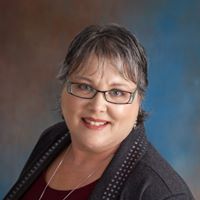
Meredith Egan is an author and executive coach (Wild Goat Executive Coaching: wildgoatcoaching.ca) who has worked with crime victims and prisoners for more than twenty-five years. She has been trained in restorative justice mediation and peacemaking circles, and has been honoured to learn from many First Nations people. Meredith has taught and spoken in schools, universities, prisons and communities on restorative justice, creative writing, victim empathy, and restorative parenting, throughout Canada and internationally. She holds a Doctorate in Pharmacy from the University of Alberta.
In 2016, Just Living: A Novel was published, Meredith’s first work of fiction. It characterizes the complicated relationships that exist in the aftermath of crime, and has received critical acclaim.
Beyond kale and yoga: strategies to reduce compassion fatigue and burnout as teams and individuals
Meaghan Welfare
This interactive, evidence-based and trauma-informed session is suitable for novice and experienced participants alike. Using the most recent research in the field, it will explore assumptions about compassion fatigue and vicarious trauma, the organisational and personal barriers that professionals and volunteers face in their daily lives, and offer new and creative approaches to transforming these occupational hazards.
Over two decades of research proves that working in high-stress, trauma-exposed professions such as law enforcement, victim services, healthcare and RJ carries elements of risk to the service provider: compassion fatigue, secondary trauma and burnout can take a cumulative toll on us as individuals and as team members. What can those working with victims, offenders and communities impacted by crime do to protect themselves from difficult accounts that they hear on a regular basis, limited resources and the high volume of work, while still remaining effective and compassionate?
Participants will learn:
- key factors that increase the risk of compassion fatigue, burnout and secondary trauma
- early intervention strategies
- workplace strategies: what works?
- organisational strategies: what can your organisation do?

MEAGHAN WELFARE is the manager of a complaint and conflict resolution program with the Department of National Defence at CFB Kingston. She has many years of experience working in the field of conflict management in workplaces, communities, families and the criminal justice system. Meaghan has experience working in many government departments, with non-profit organisations and with public companies.
Meaghan develops and delivers training in fields including conflict management, communication, workplace bullying, decision-making for boards of directors, compassion fatigue and vicarious trauma. She is currently the Vice-President of the Board of Directors for Kingston Interval House, a shelter for abused women and children.
Target Audience
- RJ Practitioners
- Offender Services
- Justice Professionals (police/judges/lawyers)
- Educators and School Administrators
- Victim Services


